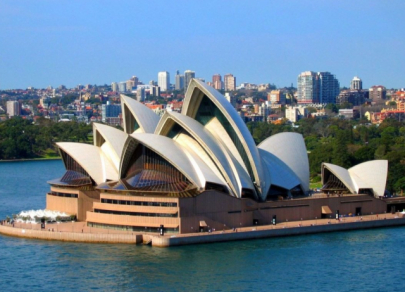FX.co ★ World’s top 6 impressive theatres
World’s top 6 impressive theatres
Vienna State Opera, Austria
This stunning opera house was built in 1869. In the late 19th century, it became the heart of cultural Europe. The building was partially destroyed by bombardment in 1945 but fully restored in 1955. Since then, the Vienna State Opera has been the venue of the Vienna Opera Ball. This renowned event takes place annually and is attended by theatergoers from all over the world.
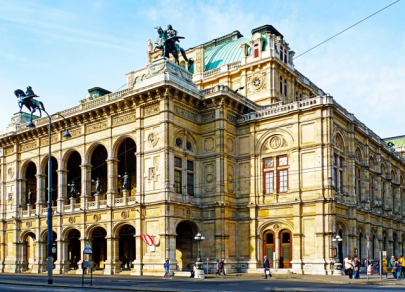
La Scala, Italy
La Scala, one of the world’s most magnificent and luxurious theatres, was built in Milan in 1778. Designed by architect Giuseppe Piermarini, it was rightfully one of the most beautiful buildings of its time. The theatre features a strict neoclassical style and has impeccable acoustics. La Scala is a 100-meter long and 38-meter wide structure that previously had 5 tires of boxes and a gallery. Nowadays, the theatre has a sitting capacity of 2,030. Until the late 18th century, La Scala’s repertoire included mainly dramatic performances. In the late 18th and early 19th century, operas by Italian composers Anfossi, Cimarosa, Cherudini, and others were performed on its stage. In 1812, La Scala hosted the first production of Rossini’s opera “La pietra del paragone,” which marked the beginning of the so-called Rossini period. The theatre’s dress code has been black tie for a long time.
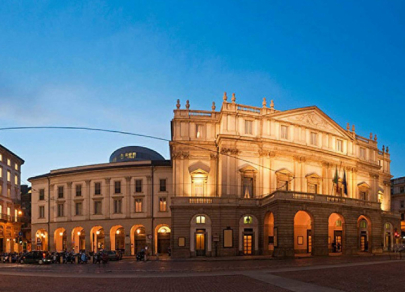
Paris Opera, France
The Paris Opera was established in 1669 by poet Pierre Perrin and composer Robert Cambert, a privilege granted to them by Louis XIV. The Palais Garnier was built for the Paris Opera in 1875. Nowadays, the Paris Opera is one of the world’s greatest opera houses with a capacity of 1,900 seats. The theatre has a vivid history. It survived the French Revolution and other historic events. In the early 20th century, the Paris Opera invited famous artist Pablo Picasso to make various decorations. The immortal masterpieces of Prokofiev and Stravinsky premiered in this luxurious palace. Today, the legendary theatre is part of the world cultural heritage.
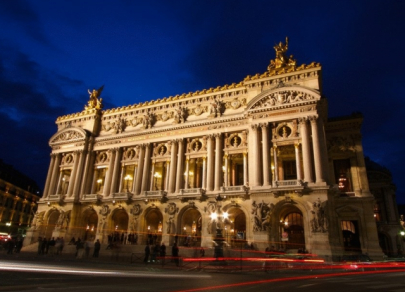
Metropolitan Opera, United States
Although the Metropolitan Opera was built in 1880, it uses modern technology, for example, individual screens on seat backs. The theatre exists thanks to donations from wealthy citizens and large organizations and is supported by the Metropolitan Opera House Company. The opera house caught fire in 1966 and had to move to the new Lincoln Center location in Manhattan. It has a capacity of 3,900 seats and operates seven months a year, from September to April. The theatre troupe is on tour in May-June. The Metropolitan Opera also gives free performances in the parks of New York in July.
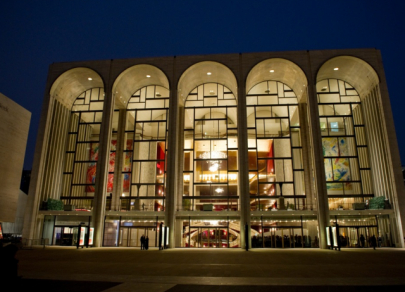
Bolshoi Theatre, Russia
The Bolshoi Theatre was established in Russia in 1776. It quickly became a distinctive landmark along with other sights in Moscow. The theatre was destroyed by a fire and rebuilt in 1825. Located in the heart of Moscow, not far from the Kremlin, its architecture strikes the imagination. The building’s facade is decorated with a white-stone portico of 8 columns and a sculpture of 4 horses by Peter Klodt. The hall’s interior features the Renaissance and Byzantine styles. A majestic crystal chandelier, made in France by special order, adorns the theatre’s ceiling. The auditorium of the Bolshoi can accommodate 2,300 people. It has hosted about 800 performances. Its early 20th century repertoire included unique world masterpieces and outstanding Russian operas. Famous Russian opera tenors Chaliapin and Sobinov gave performances on the stage of the Bolshoi Theatre, and its decorations were designed by artists Vasnetsov and Korovin.
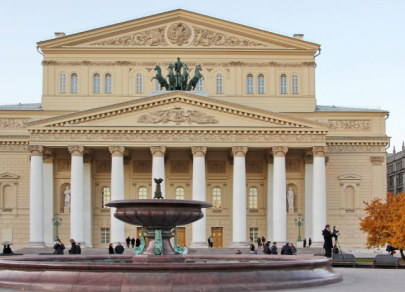
Sydney Opera House, Australia
This amazing building is a symbol of Australia. Its construction began in 1959 and lasted for 14 years. This beautiful structure is 183 meters long and 118 meters wide, covering an area of over 21,500 square meters. It sits on 580 concrete piles driven to a depth of 25 meters. The dome of the Sydney Opera House is covered with more than 1 million glazed snow-white tiles shimmering like pearls. The building is home to 5 theatres with a total capacity of 5,738 seats: the Big Concert Hall for 2,700 seats, own theatre with 1,500 seats, and less spacious drama theatre, game and theatre studios with 350 and 500 seats each. The complex has over a thousand additional office spaces, including rehearsal rooms, restaurants, and bars. The Sydney Opera House is widely regarded as one of the world's masterpieces of 20th-century architecture.
